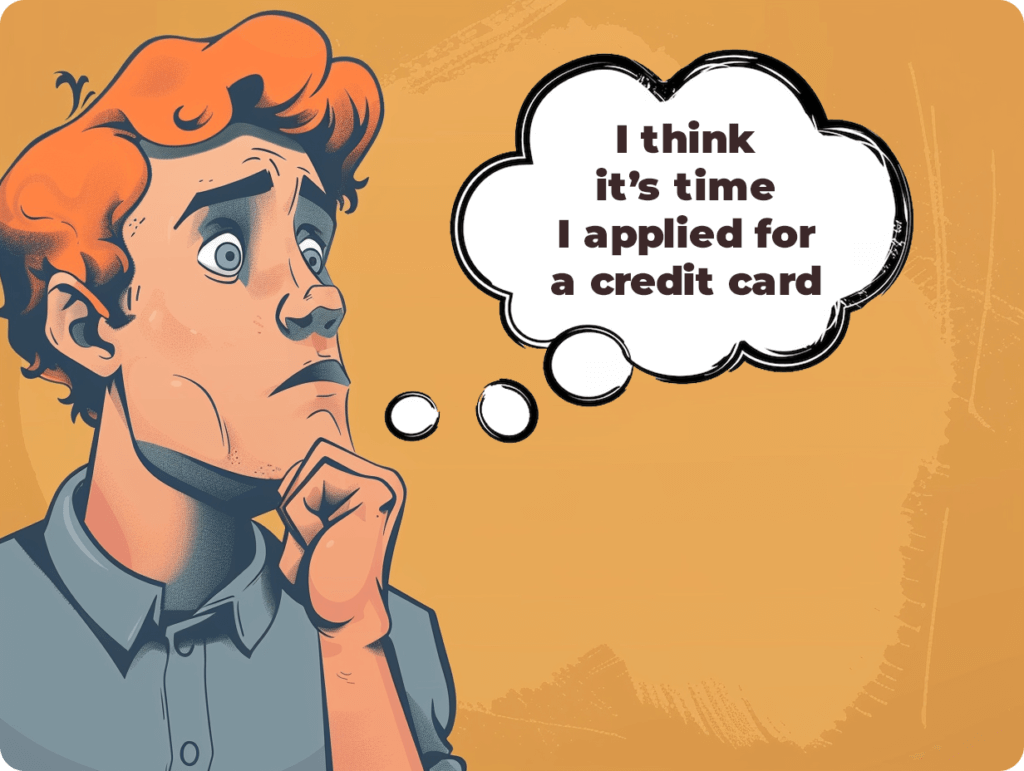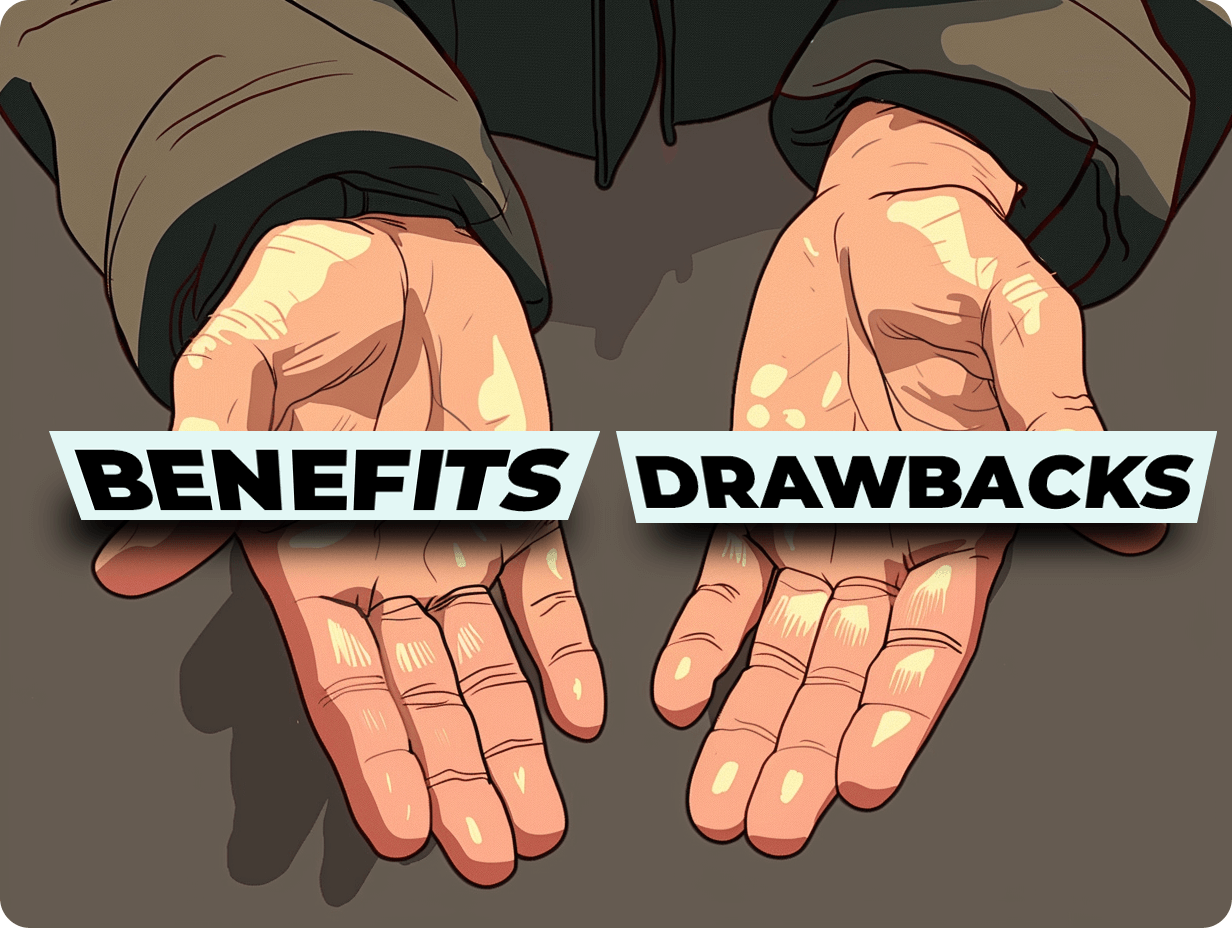- Blogs
- /
- How Do Credit Cards Work? Learn the Basics, Types, and Tips
How Do Credit Cards Work? Learn the Basics, Types, and Tips

Summary
Did you know that the average American owns four credit cards? Surprising, right? But have you ever stopped to think about how these tiny plastic cards work their magic behind the scenes?
Credit cards are not just about swiping and spending. They involve borrowing, interest rates, and payments, and have become essential in our financial lives. They provide ease, security, and flexibility in controlling costs.
Understanding credit cards is critical. It helps you judge how and when to use them.
Today we’ll cover how do credit cards work and all you need to know about them. We’ll start with their functions before moving on to the basics of how they work. Afterwards, we’ll cover choosing the best card for your needs.
Are you new to credit cards? Or do you want to improve your management abilities? This blog will help you navigate the industry like a pro.
Key Takeaways
- Credit cards allow users to buy on credit. They are essentially borrowing money from the card issuer.
- They offer a safe and easy way to buy goods and services without using physical money.
- The key players in the credit card industry include card issuers (banks and financial institutions), card networks (Visa and Mastercard), cardholders, and merchants (accepting credit card payments).
- Credit cards and debit cards differ in how they process transactions. Credit cards allow users to borrow money for purchases. Debit cards deduct funds from the user’s bank account at the point of sale.
- Credit cards come in various forms, including rewards, cashback, travel, and secured cards. Each type is designed to suit different needs. Each has its unique features and benefits.
- Managing credit cards well involves tracking transactions. You must also stay within the credit limit, pay bills on time, and understand the card agreement’s terms.
- Using credit cards well can build good credit and raise credit scores. This includes making timely payments and keeping credit utilization low. Also, monitor credit reports for accuracy.
- When choosing a credit card, consider interest rates and fees. Also, think about rewards and benefits. They should fit your spending habits, lifestyle, and financial goals. Compare different cards to find the best fit for your needs.
Credit Card Basics

Understanding the Function of Credit Cards
Credit cards allow users to buy on credit. They are essentially borrowing money from the card issuer. This means that individuals can buy items even if they don’t have the cash. A credit card’s function is to offer a safe and easy way for people to buy goods and services. They can do this without using physical money.
A significant aspect of credit cards is their revolving line of credit. Users are given a specific limit up to which they can borrow money. For instance, if someone has a $2000 limit on their card. They can spend up to $2000 before reaching their max. This feature gives users flexibility in managing their finances. They can use it to buy things they can’t afford now.
Key players in the credit card industry include card issuers. They are banks and financial institutions. They create and distribute credit cards. Visa and Mastercard are card networks. They help parties in a purchase transaction. On top of these entities, cardholders are essential as they use credit cards daily.
Merchants are also vital to the system. They accept customer credit card payments for sold products or services. Merchants must be willing to receive payment through this method. Without that, consumers can’t use their cards for everyday purchases.
Credit vs Debit
Credit and debit cards differ mainly in how they process transactions. This is in terms of funds availability and usage. Credit cards let users borrow from the issuing entity when making purchases. Debit cards directly deduct funds from one’s bank account at the point of sale.
One key advantage of using a credit card over a debit card is its impact on a person’s financial history. It helps build up one’s credit history. Paying on time gives you a good track record. It reflects well on your finances. This is important for getting loans or mortgages later.
Also, using credit instead of debit has another benefit, the rewards program many issuers offer today. These incentives include cashback bonuses on specific spending categories, like groceries. They also include points redeemable for travel expenses or gift vouchers.
Types of Credit Cards
Overview Types
Credit cards come in various forms, each designed to suit different needs. There are rewards, cashback, travel, and secured cards. Rewards cards offer points or miles for purchases. Cashback cards provide a percentage back on spending.
Some credit cards cater to specific purposes like business expenses or student needs. Each type has unique features. Each type has benefits and eligibility criteria tailored to its target audience. For example, student credit cards may have lower credit limits. But they offer rewards that are relevant to students.
Secured credit cards are suitable for people with limited or poor credit. They require a security deposit as collateral. This makes them more accessible. It’s for those who might not qualify for unsecured credit cards. This is due to their financial history.
Specialized Cards
Specialized credit cards cater to cardholders’ specific needs or preferences. They include frequent flyer miles and hotel rewards, among others. These credit cards accrue airline miles based on spending. You can redeem the miles for flights.
Hotel rewards programs allow cardholders to earn points for free stays. They can use them at participating hotels with the designated hotel-branded card. You get cashback on specific categories, like groceries or gas. It offers higher returns in these areas.
Co-branded credit cards are developed in partnership with retailers or organizations and provide exclusive benefits related to those partnerships. These could include discounts or special access events. You could also get faster rewards when shopping at partner stores.
Benefits Galore
Specialized credits have a big advantage. They let you maximize benefits based on your preferences and lifestyle.
- Rewards: Earn points/miles/cashback tailored to personal interests.
- Exclusive Benefits: Access unique perks like VIP experiences through co-branded partnerships.
- Targeted Savings: Enjoy higher returns in preferred spending categories like travel or dining.
- Improved Eligibility: Secured options help build/rebuild credit without high approval requirements.
Specialized credits offer tailored incentives. They are tailored to specific needs. However, consumers must assess their spending habits. They must do this before choosing a card type that fits their lifestyle.
Applying for a Credit Card

1. Before Applying
Before applying for a credit card, it’s crucial to understand how credit cards work. Assess your financial situation to see if you can manage it responsibly. Research various types of credit cards available in the market to find the best fit for your needs. Check your credit score; it plays a significant role in deciding your eligibility and rates.
When considering what credit card to get, consider how you usually spend money. Do you pay off bills promptly or carry balances? Understanding these habits will help you choose the right type of card. It will align with how you handle finances daily. For example, rewards cards are great if you pay off balances monthly. But they are not ideal if you carry debt.
To understand each credit card, look at its terms closely before applying. Some may have annual fees or higher interest rates, so be aware of what each card offers and the costs involved. Consider factors like grace periods, foreign transaction fees, and penalties for late payments. Use these factors to decide which card suits you best.
2. Application Process
The process is simple once you’ve understood credit cards and found the right one. Fill out an online or paper application form provided by the issuer. Use accurate personal details, such as name, address, contact information, and employment specifics. These include the job title and income level.
Applying for credit cards requires accurately disclosing financial information. Details on applications about monthly income and debts, like loans or mortgages, are critical. They determine approval chances and spending limits on new accounts.
You might need to submit more documents. This will be based on your circumstances during the applications’ processing phase. Issuers might need proof of identity, like a driver’s license. They might also need residence documents, like utility bills. They need these before finalizing approvals.
3. Handling Refusal
If you face rejection after applying for credit cards, don’t fret. There are ways forward! Contact the issuer after a decline. They can offer insights into why approval was not granted. This feedback helps with future applications by addressing specific issues found in reviews.
After learning why you were refused, you must improve your finances. This is key to boosting approval odds after rejections. Paying bills on time reduces debts. Fixing any errors in personal reports significantly raises credibility scores.
Standard options may seem limited due to unfavorable responses. So, it’s worth exploring secured credits. They have lower requirements than standard options demand from applicants.
Using Credit Cards Wisely

1. Effective Management
Effective credit card management is crucial for your financial health. Track your transactions, and watch your spending. You must stay within the credit limit. Paying credit card bills in full and on time helps avoid interest charges and late payment fees.
Also, regularly reviewing statements and checking for unauthorized transactions is essential for effective management.
To manage your credit cards well, consider setting up alerts. They can warn you about large purchases or nearing your credit limit. This can help you stay informed about your spending habits and prevent overspending.
Make a monthly budget. It should include all expenses, even credit card payments. It can help you manage your finances well.
Another crucial part of managing credit cards well is understanding the terms of your card agreement. Learn the interest rates, fees, and rewards programs. Also, learn other essential information. Use it to make wise credit card choices.
2. Responsible Usage
Using credit cards responsibly means using them wisely. It means not going over the credit limit and avoiding unnecessary debt. It’s essential to create a budget and only charge what you can afford to pay off each month. Avoid impulse purchases. Consider if a purchase is necessary before swiping your credit card. This helps with responsible usage.
Always prioritize making the minimum payment by the due date. Do this if you cannot pay the entire balance. Missing payments can lead to late fees and damage your credit score. Be mindful of your credit card spending. You can avoid debt that may be hard to repay later.
Remember, you must understand how interest accrues on balances. This is crucial for using credit cards responsibly. You reduce the total interest paid over time by paying more than the minimum monthly. You also work towards paying off any debt faster.
How Do Credit Cards Work? Credit Card Transactions
1. How Transactions Work
When a credit card is used for a purchase, the merchant asks the card network for permission. The network checks if there is enough credit. It tells the merchant whether to proceed. If approved, the amount spent gets subtracted from what’s left of your credit limit.
So merchants send requests to check transactions. Networks approve or decline based on credit. Once approved, spent amounts reduce remaining credit limits until paid off later.
In summary, the process involves merchants requesting authorization from card networks before completing purchases. Networks check limits and respond accordingly.
2. Understanding Statements
Credit card statements are like summaries. They show what you’ve bought, where, and how much you spent. They also detail the minimum payments due and the total balances owed. They show the leftover credits after spending. They also show any fees or interest.
You can spot errors easily when reviewing these statements regularly. Watching statements helps track spending. They show where the money goes each month. This is key to sound financial management.
Interest and Fees
1. Explaining Interest
Credit cards often charge interest on any remaining balance if the amount is unpaid by the due date. The Annual Percentage Rate (APR) interest rate is added to the outstanding balance. You must grasp how interest is calculated. It can significantly affect the total cost of using a credit card.
Understanding how interest charges work can help users manage their finances better. For instance, if you have a $500 balance on your credit card with a 15% APR, you would pay $75 in interest each year if you don’t clear the balance.
Interest rates are influenced by various factors, such as the prime rate set by banks. Knowing this helps people make informed decisions. They can decide when and how much to use their credit cards.
2. Understanding Fees
Credit cards have different fees. Users should be aware of them to avoid unnecessary expenses. These include annual, late payment, and balance transfer fees. Being mindful of these charges enables individuals to plan their finances more effectively.
Late payment fees are incurred when a user fails to make at least the minimum payment by its due date. These extra costs can add up quickly. They can burden cardholders if not managed well.
Cash advance fees apply when withdrawing funds from a credit card through an ATM or bank teller. This fee is usually charged as a flat rate or a percentage of the total cash withdrawal amount.
3. Making Informed Decisions
Cardholders can make smarter financial choices. They do this by understanding interest calculations and charges. These charges include late payments and cash advances. Knowing these details helps you avoid them. It also helps you get the most from benefits like credit card rewards.
Knowing potential costs empowers people. It helps you create adequate budgets. You can make these budgets around your credit card habits. This is great for your long-term financial health.
Understanding these aspects lets you compare credit card offers better. You can consider APRs and fees. Then, you can make informed decisions.
Benefits and Drawbacks

Advantages
Credit cards are handy tools in today’s world. They offer convenience for buying things. You can use them online or at a store. This means you don’t always need to carry cash around with you.
Moreover, using credit cards responsibly can help build credit history. You show financial responsibility by always paying your card on time. This can boost your credit score.
Many credit cards come with enticing rewards programs. These programs allow users to earn points or cashback on their purchases. For example, some cards offer airline miles that can be redeemed for flights or hotel stays.
Credit cards provide extra security for consumers. This is compared to carrying cash. For example, most issuers have fraud protection policies. These policies safeguard against unauthorized transactions if your card is lost or stolen.
Potential Drawbacks
Using credit cards has many benefits. But it’s key to be aware of their potential drawbacks too.
One big drawback is the high interest rates credit card companies charge for unpaid balances. If not managed well, these interest charges can add up fast. They lead to big debt over time.
Another common pitfall is the urge to overspend with credit cards. This is to buy things beyond one’s means. This behavior can cause financial strain. It can also make it hard for people to repay their debts on time.
Furthermore, some credit cards may come with annual fees or other charges. These charges add up over time and increase the overall cost of using them.
To summarize:
- Credit cards offer convenience and security. But, they may lead to debt if not managed wisely.
- They help build credit history while potentially causing financial strain due to overspending.
- Rewards programs provide extra benefits, such as points and cashback. But be careful of high interest rates.
Impact on Credit Score
Your credit reports contain vital information. Lenders use it to calculate your creditworthiness. They use it when you apply for loans or credit.
Building better credit and, consequently, a good credit report involves using a credit card responsibly. Making timely payments is crucial to establish a positive credit history. Paying your credit card bills on time shows lenders this. It shows you are reliable and can manage debt well.
Keeping credit utilization low is another key factor in improving credit scores. This means only using a small portion of the available credit limit on your card. For example, if your credit limit is $1,000 and you only use $300, your utilization rate would be 30%. Lowering this percentage can positively impact your credit score.
Regularly monitoring your credit report for accuracy is essential in building better credit. Check for errors or inaccuracies. Fix them promptly to prevent harm to your credit score. It’s important to review all the information in the report to ensure its correctness.
Additionally, you must regularly check credit reports from major bureaus like Equifax or Experian. You must look for accuracy and signs of theft.
Credit monitoring services offer alerts about changes or suspicious activities. These things relate to your credit profile. Monitoring proactively helps detect unauthorized transactions early. This reduces the risk of severe financial harm from fraud or identity theft.
Selecting the Right Card
1. Shopping for Cards
When considering what credit cards to use, start by shopping around. Compare interest rates, fees, and rewards. Also, consider other features to find a card that suits you. Before choosing a credit card, consider your spending habits, lifestyle, and financial goals.
Reading reviews and asking friends or family who have used different credit cards can offer valuable insights. It can help you understand the experiences of other cardholders. Learning how others benefited or faced card challenges can help you decide. It can guide you in selecting a card that fits your needs.
Look for cards that match your spending patterns. They should give the most value based on your preference. Use online comparison tools. Or, ask financial advisors. This will ensure you make an informed choice about which credit card to choose.
2. Comparing Cards
Comparing how credit cards work involves looking at factors. These include interest rates and annual fees. Also, the rewards and extra perks each card offers. By looking at these elements in different markets, you can find which fits your needs best.
Aligning a chosen credit card with your spending habits is vital. It should fit how you typically use it. Choose a card that fits your purchasing behavior. They should be tailored to your preferences.
You can use online tools for this purpose. Or, consult finance professionals, like advisors who specialize in personal finances. They can greatly help in navigating the many options of credit cards.
Final Words
So, now you’ve got the lowdown on credit cards – from the basics to selecting the right one. Remember, using credit cards wisely can be a game-changer for your financial well-being. Make those transactions count. Watch out for sneaky interest rates and fees that can creep up on you!
Take charge of your credit card journey. Do so by staying informed and making smart choices. Your credit score will thank you, and your wallet will too.
FAQs
How do credit cards work?
Credit cards let you borrow money from a bank. You borrow to make purchases. You can spend up to a certain limit and must repay the borrowed amount and any interest accrued by the due date.
What are the benefits of using credit cards?
Credit cards offer convenience, security, and rewards. These include cashback or travel points. They also help build your credit when used responsibly.
How can I select the right credit card for me?
Consider factors like your spending habits and reward preferences. Also, look at annual fees and interest rates. When choosing a credit card, decide if you want perks. For example, perks like travel insurance or purchase protection.
Do credit card transactions impact my credit score?
Yes, how you manage your credit card transactions influences your credit score. Timely payments help your score. But late or high usage hurts it.
What should I be cautious about when using credit cards?
Avoid overspending. Only spend what you can afford to repay each month. This will prevent debt. Be mindful of high interest rates and fees associated with missed payments.
Our Latest Blogs:

ThisIsJohnWilliams
FREE Strategy Session to Fix Your Credit Blogs / Financial stability is the cornerstone of well-being, so understanding the...

ThisIsJohnWilliams
FREE Strategy Session to Fix Your Credit Blogs / Dealing with financial difficulties is overwhelming. But when faced with...

ThisIsJohnWilliams

ThisIsJohnWilliams
FREE Strategy Session to Fix Your Credit Blogs / In today’s digitally interconnected world, we all face the danger...

ThisIsJohnWilliams






